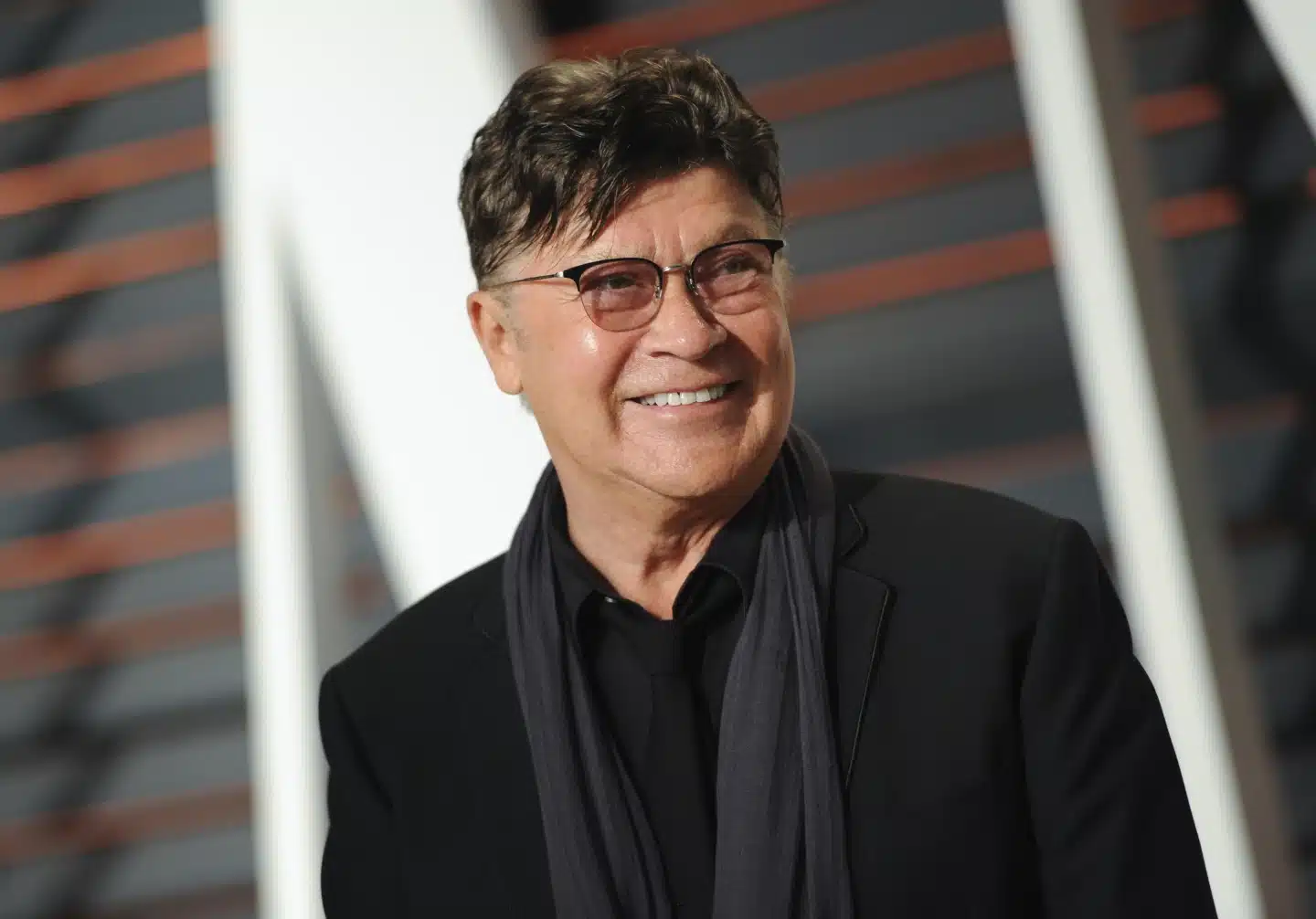News
Robbie Robertson, Lead Guitarist And Songwriter Of The Band, Dies At 80

Robbie Robertson, The Band’s lead guitarist and composer who dug American music and folklore in classics like “The Weight” and “Up on Cripple Creek” and helped reshape contemporary rock, died Wednesday at 80.
Robertson died surrounded by family in Los Angeles “after a long illness,” according to publicist Ray Costa.
The Band profoundly influenced popular music in the 1960s and ’70s, first by amplifying Dylan’s polarising transition from folk artist to rock star and then by absorbing Dylan’s and Dylan’s influences as they fashioned a new sound immersed in the American past.
“Long before we ever met, his music played a central role in my life — and the lives of millions and millions of other people all over this world,” Martin Scorsese, Robertson’s close friend and frequent collaborator, said. “The Band’s music, and Robbie’s own later solo music, seemed to come from the deepest place at the heart of this continent, its traditions, tragedies, and joys.”
Robertson, a Canadian-born high school dropout and one-man melting pot — part-Jewish, part-Mohawk and Cayuga — fell in love with his adopted country’s seemingly limitless sounds and byways and wrote out of a sense of amazement and discovery at a time when the Vietnam War had alienated millions of young Americans.
His life had a “Candide” quality to it as he found himself among many of the rock era’s giants — getting guitar tips from Buddy Holly, seeing early Aretha Franklin and Velvet Underground performances, smoking pot with the Beatles, watching the songwriting team of Leiber and Stoller develop the material, chatting with Jimi Hendrix when he was a struggling musician calling himself Jimmy James.
Robbie Robertson, The Band’s lead guitarist and composer who dug American music and folklore, died Wednesday at 80.
The Band began in the early 1960s as backup musicians for rockabilly icon Ronnie Hawkins, and their years together in bars and juke joints established a depth and diversity that allowed them to play nearly any type of music in any setting. The Band also included Arkansan drummer-singer Levon Helm and three other Canadians:
- Bassist-singer-songwriter Rick Danko
- Keyboardist-singer-songwriter Richard Manuel
- All-around musical maestro Garth Hudson
They were previously known as the Hawks but were dubbed “The Band” by their admirers because people would point to them while they were with Dylan and refer to them as “the band.”
Their first two albums, “Music from Big Pink” and “The Band,” both released in the late 1960s, continue to define them. The rock scene moved away from the Beatles’ “Sgt Pepper’s Lonely Hearts Club Band” into a surge of sound effects, extended jams, and lysergic lyrics. “Music from Big Pink,” named for the old house outside Woodstock, New York, where Band members resided and gathered, was the sound of many people returning home.
Robbie Robertson, The Band’s lead guitarist and composer who dug American music and folklore, died Wednesday at 80.
The tone was intimate, and the lyrics, derived from blues, gospel, folk, and country music, alternated between amusing, mysterious, and yearning. The Band itself seemed to represent selflessness and a shared and vital past, with each of the five members making significant contributions and appearing in basic black clothing in press shots.
Later that year, Dylan was seriously injured in a motorbike accident and spent time recuperating in the Woodstock area, where The Band was subsequently established. Dylan and his fellow artists walked out of time completely, with no contractual duties or timetables. They jammed on old country and Appalachian tunes while working on originals like “Tears of Rage” and “I Shall Be Released,” originally meant as demo recordings for other artists. Before being officially released — in part in 1975, then in a full six-CD set in 2014 — “The Basement Tapes,” as they were later dubbed, were among rock’s first bootlegs.
Working and writing with Dylan inspired The Band to create their album. “Music from Big Pink” included Dylan-Danko collaborations like “This Wheel’s On Fire” and “Tears of Rage,” as well as Band originals like Manuel’s “In a Station” and Robertson’s “Caledonia Mission.”
In his memoir, Robertson recalls the first time their former boss heard “Music from Big Pink.”
“After each song, Bob looked proudly at ‘his’ Band. ‘This is amazing,’ he exclaimed when ‘The Weight’ came on. “Who wrote that song?” he wondered. “‘Me,’ I replied. He shook his head, whacked my arm, and exclaimed, ‘Damn! ‘Did you write that song?'”
SOURCE – (AP)





























